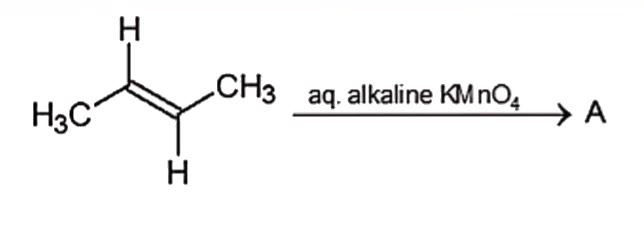What s true about rate of reaction ?
Decrease with increase in temperature
Increase with increase in temperature
May increase or decrease with increase in temperature
Does not depend on temperature
The correct Answer is:B
To determine what is true about the rate of reaction concerning temperature, we can analyze the options provided based on our understanding of chemical kinetics.
1. Understanding the Rate of Reaction: The rate of a chemical reaction is influenced by various factors, including temperature, concentration of reactants, surface area, and presence of catalysts.
2. Effect of Temperature on Reaction Rate:
- When the temperature of a reaction mixture is increased, the kinetic energy of the molecules also increases.
- This increase in kinetic energy leads to more frequent and more energetic collisions between reactant molecules.
3. Activation Energy:
- Every reaction has an activation energy (Ea), which is the minimum energy required for the reactants to transform into products.
- At higher temperatures, a greater fraction of molecules have sufficient energy to overcome this activation energy barrier.
4. Effective Collisions:
- Effective collisions are those collisions that result in a reaction.
- As temperature increases, the number of effective collisions also increases, leading to an increased rate of reaction.
5. Evaluating the Options:
- Option 1: "Decrease with increase in temperature" - This is incorrect because increasing temperature increases the rate of reaction.
- Option 2: "Increase with increase in temperature" - This is correct as explained above.
- Option 3: "May increase or decrease with increase in temperature" - This is misleading; generally, the rate increases with temperature.
- Option 4: "Doesn't depend on temperature" - This is incorrect because temperature significantly affects the rate of reaction.
6. Conclusion: The correct statement about the rate of reaction is that it increases with an increase in temperature.
Final Answer:
The rate of reaction increases with an increase in temperature.
- When the temperature of a reaction mixture is increased, the kinetic energy of the molecules also increases.
- This increase in kinetic energy leads to more frequent and more energetic collisions between reactant molecules.
- Every reaction has an activation energy (Ea), which is the minimum energy required for the reactants to transform into products.
- At higher temperatures, a greater fraction of molecules have sufficient energy to overcome this activation energy barrier.
- Effective collisions are those collisions that result in a reaction.
- As temperature increases, the number of effective collisions also increases, leading to an increased rate of reaction.
- Option 1: "Decrease with increase in temperature" - This is incorrect because increasing temperature increases the rate of reaction.
- Option 2: "Increase with increase in temperature" - This is correct as explained above.
- Option 3: "May increase or decrease with increase in temperature" - This is misleading; generally, the rate increases with temperature.
- Option 4: "Doesn't depend on temperature" - This is incorrect because temperature significantly affects the rate of reaction.
The rate of reaction increases with an increase in temperature.
Similar Questions
Knowledge Check
What is true about Bt toxin?
AThe inactive protoxin gets converted into active form in the insect gutBBt protein exists as active toxin in the BacillusCThe activated toxin enters the ovaries of the pest to sterilise it and thus prevent its multiplicationDThe concerned Bacilllls has antitoxinsFor the reaction, H2(g)+Br2(g)→2HBr(g), the reaction rate =k[H2][Br2]1/2. Which statement is true about this reaction?
AThe reaction is of second orderBMolecularity of the reaction is 3/2CThe unit of k is sec−1DMolecularity of the reaction is 2.
